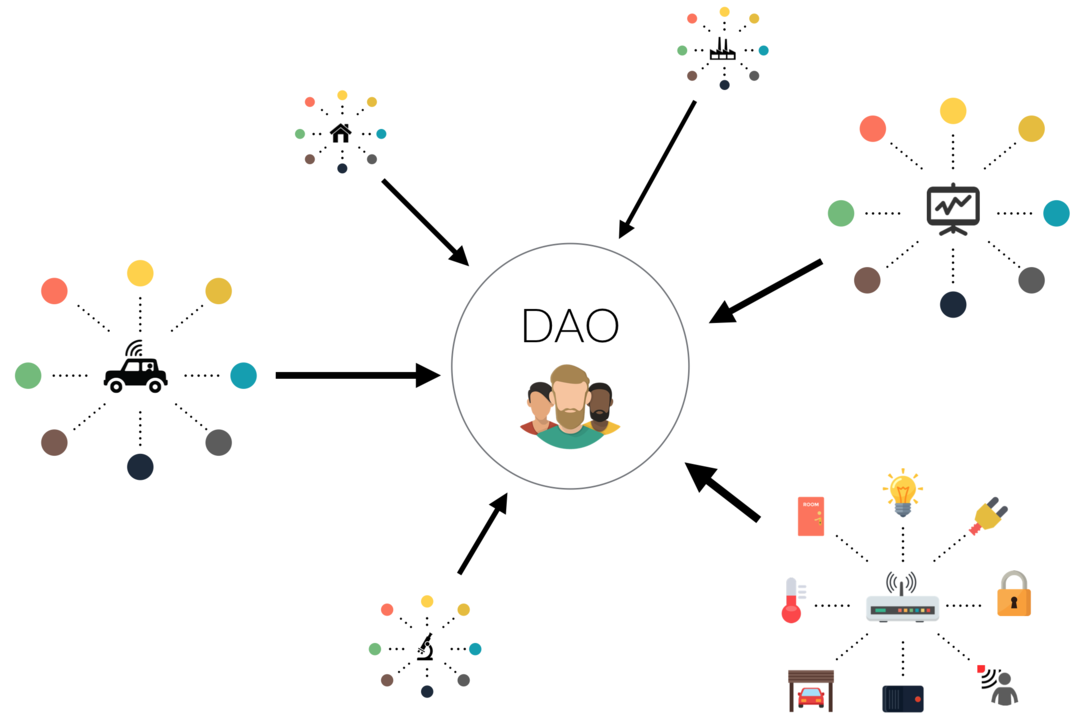In today’s world of rapid technological innovation, the healthcare sector is undergoing significant changes. Keeping pace with these latest technological developments becomes increasingly critical in navigating through the dynamic landscape. Among the notable technological advancements is the rise of Decentralized Autonomous Organizations (DAOs), a new organizational paradigm powered by blockchain technology.
Decentralized Autonomous Organizations (DAOs)
DAOs, pronounced as ‘dow,’ are a unique organizational structure representing blockchain technology’s transformative potential. ConsenSys, a well-known blockchain organization, defines DAOs as governing bodies that oversee the allocation of resources linked to affiliated projects, thereby ensuring their sustained success.
At their core, DAOs represent coalitions of individuals united by shared objectives, ranging from investment in start-ups to managing stable coins and acquiring Non-Fungible Tokens (NFTs). Often likened to a crypto cooperative, they are colloquially dubbed as a ‘financial flash mob’ or a ‘group chat with a bank account’, embodying a collective entity entrenched in decentralized decision-making processes.
Utilizing smart contracts, DAOs operate on self-executing codes embedded within a blockchain, facilitating automated decision-making devoid of centralized control. This innovative design distinguishes DAOs from traditional organizational structures, imbuing them with autonomy guided by predefined rules encoded within their smart contracts.
Prominence of in today’s organizational landscape
Due to their decentralized structure, DAOs offer increased level of transparency and autonomy. The absence of a central governing authority fosters a more democratic decision-making process, mitigating potential biases associated with centralized control. Moreover, the automated execution of smart contracts streamlines operational efficiency, reducing the bureaucratic impediments endemic to traditional organizational frameworks. DAOs have the potential to catalyse a transformative shift in various sectors, notably healthcare.
DAOs and Healthcare
By implementing a decentralized governance model in healthcare, DAOs reduce the influence of centralized authorities, promoting transparency and active participation among all stakeholders within the healthcare ecosystem. This decentralized approach contrasts with the prevailing healthcare system, characterized by rushed and impersonal medical visits, alongside the complex processes for accessing information and referrals.
The structure of a DAO plays a crucial role in determining its effectiveness and success. Its design can be customized to uphold predetermined objectives and Key Performance Indicators (KPIs) within the healthcare industry. For example, if a healthcare provider does not meet specific care standards, the DAO can transfer ownership and decision-making authority to other providers who demonstrate superior performance. By using Objectives and Key Results (OKRs) and KPIs, a healthcare DAO can establish clear, measurable goals for its members, evaluate their performance against organizational standards, and encourage continuous improvement in patient care. Integrating DAOs into healthcare governance could revolutionize data liquidity dynamics, encourage collaborative research, and put patients at the forefront of decision-making processes.
In this front, Molecule, a healthcare start-up, is pioneering the use of DAOs in the industry. Their focus is on data liquidity and patient-driven research funding. This pioneering approach exemplifies how DAOs can bring about a paradigm shift towards a more collaborative, patient-centric healthcare landscape. Molecule’s efforts are noteworthy in the pursuit of healthcare innovation and improvement.
Conclusion
In conclusion, the impact of Decentralized Autonomous Organizations (DAOs) in revolutionizing the healthcare sector has been significant. However, their influence extends far beyond healthcare. DAOs is proving to have versatile frameworks that can be effectively utilized across various sectors, including finance, supply chain management, governance, and even creative industries like art and music. It also offers a framework for enhancing transparency, efficiency, and inclusivity across diverse domains. As we continue to explore the possibilities of decentralized systems, it’s clear that DAOs hold immense promise in reshaping the future of multiple domains, driving progress toward more equitable and efficient systems.


